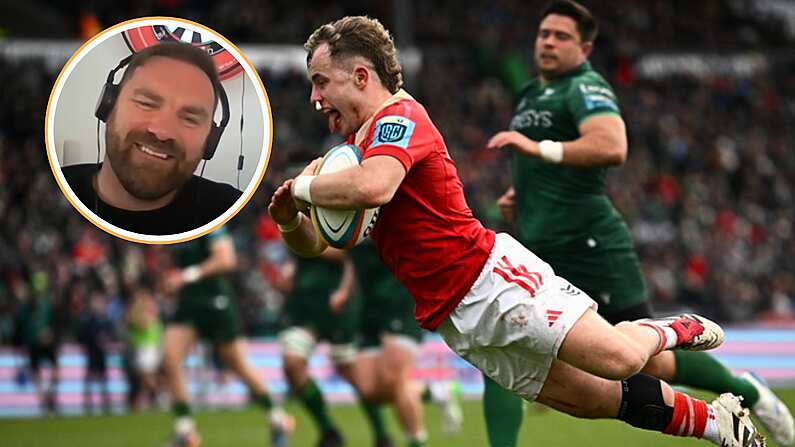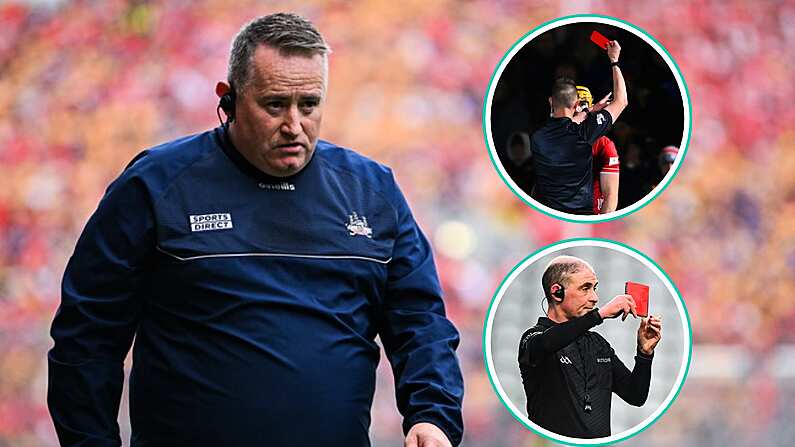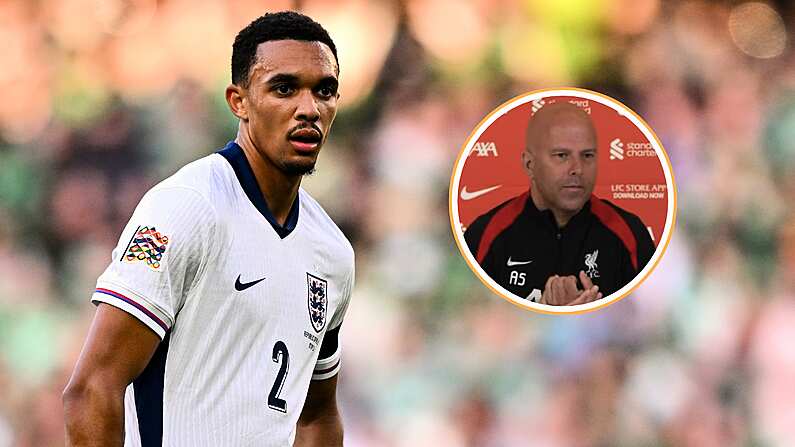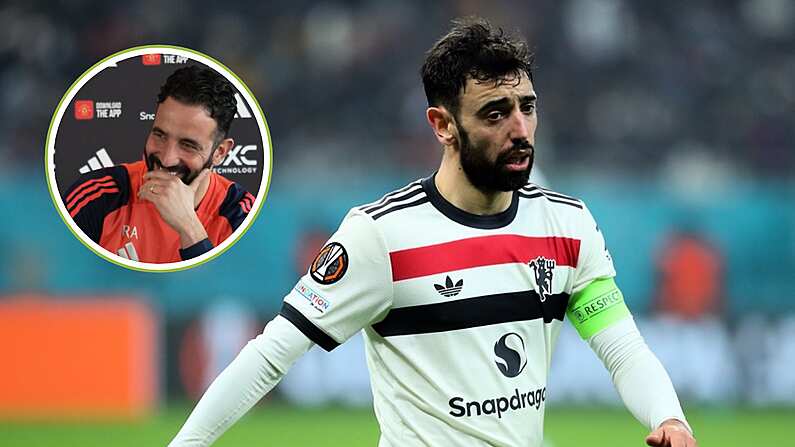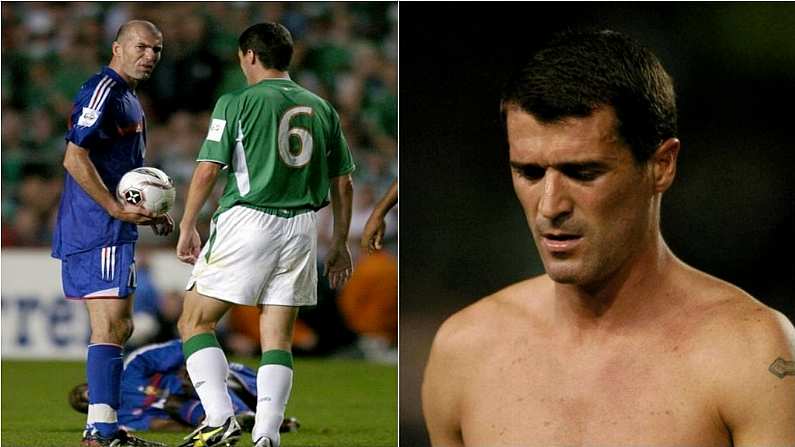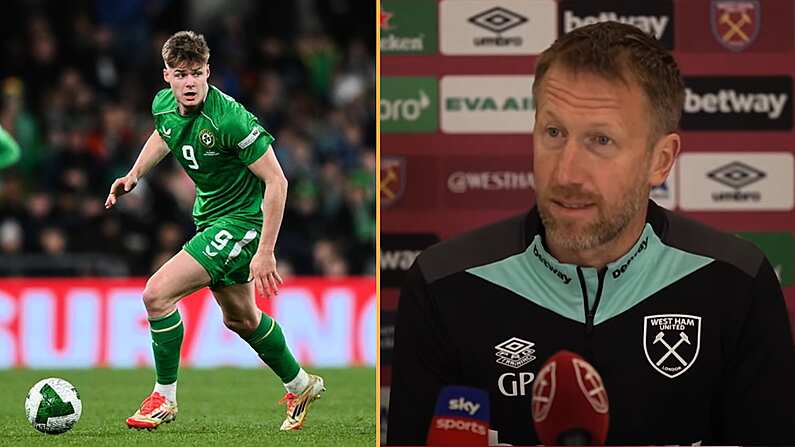Much has been made of Manchester City’s astonishing run of form in England. They have won their last 18 games in all competitions and sit ten points clear at the top of the Premier League. Their “dominance” has been the subject of many a think-piece over the past few days.
But this is also a City team that finished 18 points off first place last year and that have tasted no continental success (yet). The Premier League has been very competitive since the departure of Alex Ferguson from Man United, with four different title winners in seven years. Continental leagues, by contrast, have seen reigns of dominance left, right and centre. Bayern, Juventus and PSG have remained near-untouched for years, while even Portugal and Scotland have seen little variation year-on-year.
While it's early yet, change appears to be afoot this season. And very suddenly.
Bayern may well pull their classic mid-season turnaround, but recent results have slipped past them and their gap to second place is tight. Juventus are in a desperate fight to hold on to their Serie A crown. Atlético Madrid look far and away the best team in La Liga.
What we want to know is: is this trend across Europe a coincidence? Or could these “anomalies” actually spell the dawn of a new age for European football?
ITALY
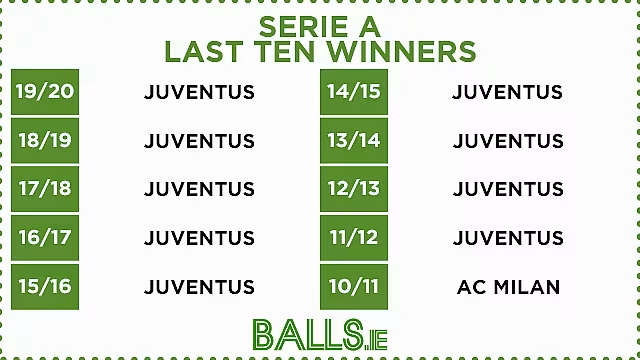
Of the top five leagues in Europe, Serie A has seen the most dominant one-club reign in recent years. Juventus have held a firm grip on the league title since Milan’s triumph in 2010-11 and the “Old Lady” entered this season on the verge of a tenth successive Italian crown.
Former Juve midfielder Andrea Pirlo took over from Maurizio Sarri in the summer and has endured a bumpier spell than his predecessors. Both Milan clubs seem rejuvenated this year, with Milan’s team filled with exciting young prospects and Inter investing heavily in experienced talent like Romelu Lukaku, Christian Eriksen and Ivan Perisic.
Juve are over-reliant on Cristiano Ronaldo and their squad has become increasingly disjointed in recent years. Where once there was a solid squad filled with great players, Juve now send most of their attacks through Ronaldo – hardly a sustainable model for success, given his age and ever-decreasing mobility. They have fallen to comprehensive defeats at the hands of Fiorentina and Inter that would have been unthinkable in previous years.

Inter’s 3-0 win in the Milan derby on Sunday felt like a huge moment in this era of Italian football – even if Juve win their game in hand, Inter will sit five points clear. With other squads putting the emphasis on youth, it may finally be time for Juve’s iron-cast grip on Serie A to loosen.
SPAIN

La Liga has not seen one club dominate recently, but the dynasty of Barcelona and Real Madrid is well documented. Between them they have 60 Spanish league titles and, aside from Atlético’s shock win in 2013-14, every league title since 2003-04 has been won by one of them.
Atlético are back again this year. Rejuvenated by their big-money purchase of exciting young star Joao Felix and the signing of Luis Suarez from Barcelona, Atlético have run riot in La Liga this year. Even with manager Diego Simeone’s famously conservative playing style, Atléti have still scored the second-most goals in the league and sit three points clear at the top, with a game in hand over second-placed Real Madrid.

They’re not the only challengers in form – the only team to have won all five of their last five league games are Sevilla, who are in third and ahead of Barcelona. The Real team that won the Champions League four times in five years is fading away, while Barcelona’s financial troubles are well documented. The Catalan club are over €1bn in debt and their star player, Lionel Messi, is likely to leave in the summer unless he receives guarantees the club will become more competitive in Europe and make more sustainable decisions for the future.
Though Atléti’s acquisition of Felix came with a huge fee, their financial output is nowhere near the scale of Barcelona’s or Real’s, who regularly splash huge fees on global superstars. The spending has caught up with Barcelona, while Real’s latest big-money signings have failed to deliver consistently. They may well bounce back before the season is out, but their reign of dominance is certainly showing cracks.
FRANCE

We all know how PSG’s big-money operation has allowed them to not only dominate in France, but to appear as a contender on the European stage. Before the arrival of Qatari investment in 2011, PSG had only ever won two Ligue 1 titles – they have won seven more in the last ten years. Champions League finalists last year, it appeared there was no end to PSG’s reign in France.
But this year has seen struggles for the Parisians. They sacked their coach Thomas Tuchel on Christmas Eve after four losses in 17 league matches, despite topping a tough Champions League group that included RB Leipzig and Man United. Neymar has picked up his customary early-spring injury and they fell to a 2-0 home defeat to challengers Monaco last weekend.

PSG now sit third in the table, four points behind leaders Lille and one point behind Lyon. Monaco’s win at the Parc des Princes on Sunday has brought them into the mix, only two points behind PSG. PSG have been virtually untouched at the top in France since Monaco took the title in 2016-17 – that dominance may well ultimately win out this year, but for teams like Lille there is hope that cracks are appearing in the French capital.
GERMANY

Last year, Bayern Munich won every competition they entered. Barcelona are the only other European team ever to have won six trophies in one year and, until last Saturday, Hansi Flick had won more trophies than he had lost games as Bayern Munich manager.
Eight Bundesliga titles, five German Cups and two Champions Leagues in the last eight years have firmly placed Bayern as the dominant force in European football, but this year there are new faces on the block. Their traditional challengers Borussia Dortmund are struggling on the domestic front this year, allowing RB Leipzig to take their place in the top two.

Bayern suffered their sixth defeat under Flick last Saturday, away to Frankfurt – who now sit seven points behind Bayern in fourth place. Bayern still lead the table, but sit only two points clear of Leipzig in second. Though they are still going strong on all fronts, the air of invincibility that surrounded Bayern last season has somewhat loosened. They may well pull their classic mid-season trick of pulling away from the chasing pack, but there is a sense from the Bundesliga that said chasing pack may be strengthening.
PORTUGAL

Portugal’s first division has a similar situation to La Liga, with two clubs ruling the roost for years – but that reign of dominance has lasted quite a bit longer in Portugal. Every league title since 2002-03 has been won by Porto or Benfica and, aside from three years at the turn of the century, they have shared every league title since 1982-83.
This year looks likely to finally bring that reign to an end. Despite losing their star man Bruno Fernandes to Man United last January, Sporting Lisbon have taken a massive step forward this season. With 14 games to go, they sit ten points ahead of Porto in second place – who themselves are only a point ahead of Braga in third. Benfica sit four points outside the Champions League places.

Portugal may not seem like the strongest league in Europe at first glance but, given the wealth of exciting talent that has emerged from the league in recent years and the strength of their national team, it is not to be taken lightly. If Sporting can hold onto first place, this would be arguably the most seismic domestic shift in Europe – their game against Porto on Saturday looks like one of the most important and fascinating games happening this weekend.
SCOTLAND

Finally, we move a little bit closer to home. Scotland’s Premier League has fallen in quality dramatically in recent years, but Celtic and Rangers are still capable of the odd European run or shock result. To call the Scottish league one of Europe’s “major” leagues may be stretch, but if we do count it among that company, then Celtic’s reign in Scotland in recent years is untouched among the major leagues.
Celtic have won nine league titles in a row and, even more impressively, have won every single Scottish tournament since winning the domestic treble in 2016-17. A lot of that has been down to the absence of their old rivals Rangers. Rangers were relegated to the fourth tier in 2012 as a result of their financial difficulties and only returned to the top flight in 2016. Celtic have been untouched in their absence, but that run is set to end this year in spectacular fashion.

Rangers – now managed by Steven Gerrard – are 18 points clear at the top of the table, with Celtic manager Neil Lennon resigning as a result of their shocking form. Rangers have also impressed in Europe more than their cross-city rivals this season and there appears to be far more cause for optimism on the blue side of Glasgow than on the green-and-white.
IS THIS ALL A COINCIDENCE?
We must be cautious when speculating about how the European footballing landscape is changing. The traditionally "big" clubs still have far more money (well, except for Barcelona) and can surely respond to this season by throwing big cash at the players propping up the challengers to their crown. But there is something strange in the co-ordination of these changes.
The emphasis on youth in the up-and-coming teams is plain to see. While Juventus and Barcelona are increasingly dependent on Ronaldo and Messi, teams like Milan and Atléti are putting their faith in younger talent and building for the future. RB Leipzig manager Julian Nagelsmann is only a year older than Bayern's star player Robert Lewandowski. No disrespect is meant to Ronaldo, Messi, and co. - they are depended upon for a reason - but the models of building teams around ageing players is becoming less and less sustainable and more and more teams are moving towards youth.
There is another common trend across all of these leagues. Even if Bayern ultimately come through in the Bundesliga, or PSG turn it around in France, the "fear" factor of these big teams appears to have disappeared. Games that Bayern would have snatched a late winner in are now finishing in draws. Games they may have snatched a draw in are now finishing in losses. Juventus are losing games in Turin. Barcelona are regularly losing by margins of two or more. Porto and Celtic have been humbled in their league tables. The chasing pack are not afraid of going after these teams anymore and it's showing.
We cannot understate the impact COVID-19 has had on these leagues as well. This will likely end up being the only season-long absence of fans, while fixture schedules have been cramped across the continent. Many high-profile players have also tested positive for the virus, with Neymar, Ronaldo and Kylian Mbappé all facing periods out due to positive tests. It's unlikely that COVID is the sole factor behind this strange pattern, but it has undoubtedly played a big role.
Many of these triumphs and struggles in tandem may well end up being an anomaly, but the emphasis on youth and the absence of fear from the pretenders suggest that a new era of European football may not be as far away as we once thought.






